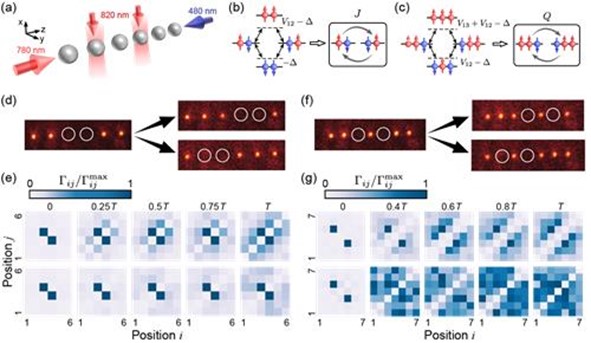The Korea Advanced Institute of Science and Technology (KAIST) announced that Professor Jaewook Ahn’s research team in the Department of Physics, in collaboration with the University of Copenhagen in Denmark, succeeded in implementing the extreme characteristics model of quantum magnetism using the Rydberg atom quantum computer.
Magnetic materials are essential in various electronic products such as hard disks and power generation. Beyond room-temperature magnetism, research on quantum magnetic properties in ultra-low temperatures has been actively conducted. Analysis and measurement of properties at ultra-low temperatures are expected to have applications in medical devices such as MRI and to stimulate the development of next-generation precision control and instrumentation engineering.
Observing the phenomena of quantum materials in extreme conditions is important in the simulation of characteristics during quantum materials design. The Rydberg atom is the most notable quantum computing platform for such simulations.
The joint research team used a Rydberg atom quantum computer to implement the Heisenberg model which is one of the models describing quantum magnetic materials. The Heisenberg model assumes interactions between spins of the magnetic material in all directions (x, y, z directions). It is one of the representative models of quantum magnetic materials.
The research team uniquely succeeded in implementing extreme anisotropy (a characteristic where interaction in a specific direction is more than 1,000 times stronger than other directions in a 3D structure) using the strong interactions of Rydberg atoms.
Professor Ahn stated, “We have demonstrated the ability of Rydberg quantum computers to explore new quantum properties and anticipate that research of quantum properties using quantum computers will become more active.”
The result of this research was recently published in the international journal ‘Physical Review X’.


